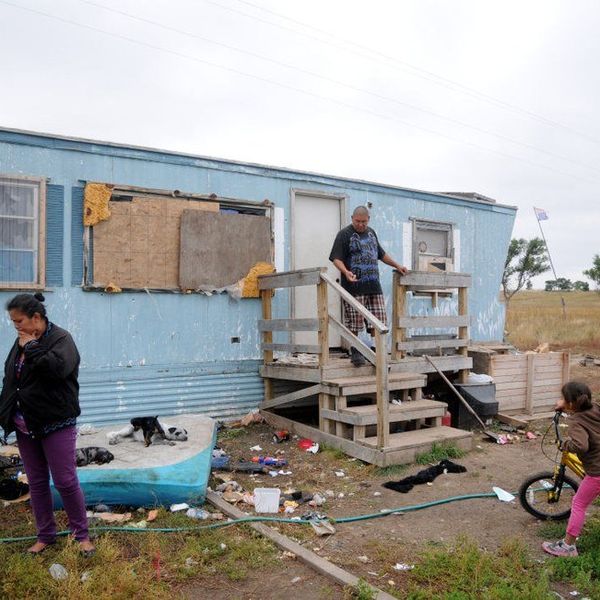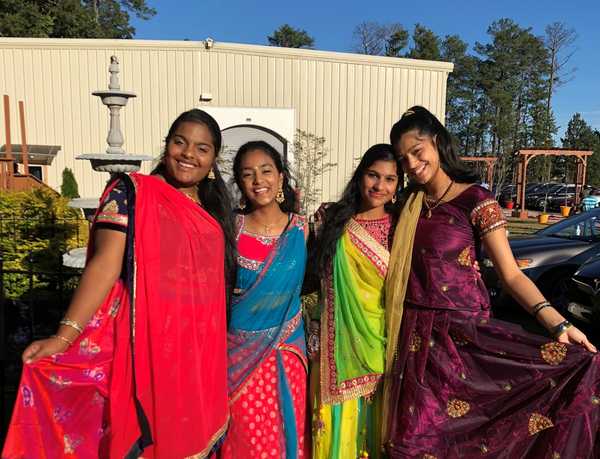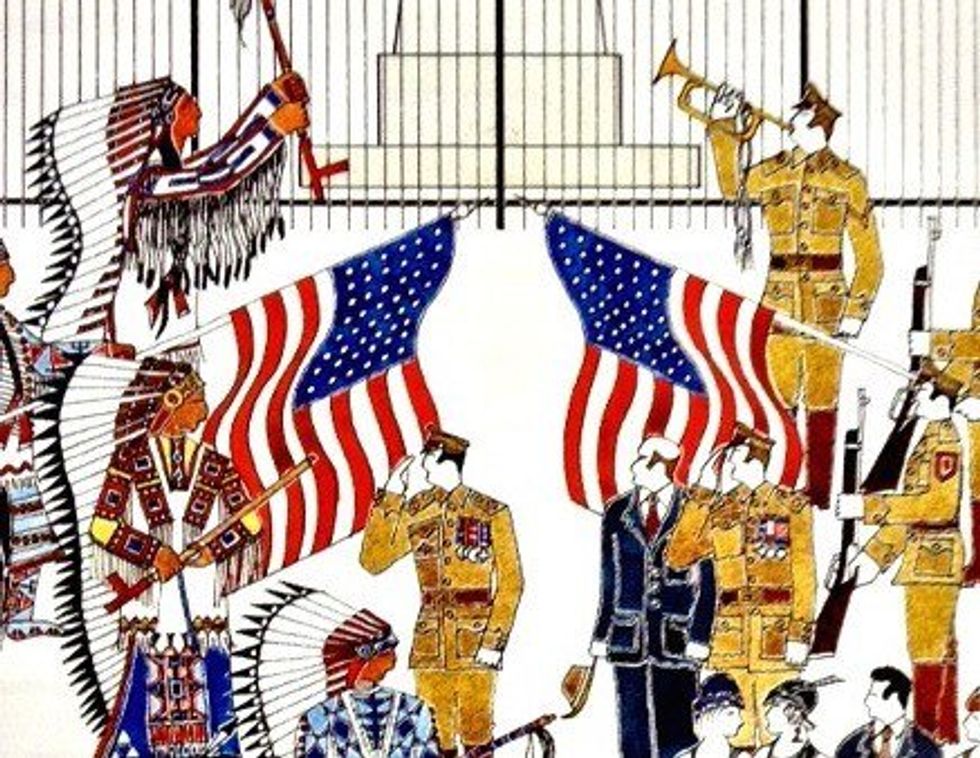Imagine people are wanting your flesh. Imagine that there’s an award for your skin, dead or alive. Did you know that in the 1800’s, there was an unspoken law stating that if three “Indians,” or Native Americans, were traveling together, they were considered a war party? And that they could be shot down and killed without any legal consequences?
Now, let's push this further: imagine they couldn’t carry your body as proof. As such, Americans thought to rip off the scalp of a Native person, believing it to be sufficient proof of the killing and perhaps meriting some reward--gold, maybe. The point is, R***skin is actually what they called the scalps that were ripped off. Separate the two words and set them in a sentence and you’re right, they are harmless. But the thing is, that word is a representation of a dehumanizing game.
Another name that has to change is, “Harney Peak.” Did you know that the man that this mountain was named after was a murderer? Did you know that he murdered our women and children? That’s another name that needs to change back to its original. The Lakota name for it is “Hihan Kaga Paha,” which means "where the owls dwell"; it’s one of our beloved sacred sites. Every year our people hike up Hihan Kaga Paha to make prayers, and it’s a serene, beautiful and rejuvenating ceremony.
Fast-forward through a slow and ruthless hundred years and imagine you’re being torn away from your mother’s arms. You're forced to go to a place where they slap your hands with rulers for speaking the only language you know as young as five years old. Pretend they cut your hair off, hair that was taught to be your soul.
Now we’re in the present. Pretend your aunt or aunty or woman relative is missing, along with hundreds of other indigenous women, and that no one is saying a word. This is confusing to you because women are sacred. All the while the word feminism is floating around. What is feminism to you, anyway? Your tribe is matriarchal. Balance is essential and validated between both men and women because both contributed towards society.
So what happened?
And then there’s the use of “illegal immigrants” and protecting our country in the GOP debate. I was so confused. This is our country, this is our home. Did you know that during World War II, approximately 25,000 Native Americans volunteered (more than any other ethnicity not drafted) to fight in the war because it was our home? And that many of these veterans returned to continue facing discrimination, despite their sacrifice?
I’m not illustrating these images to guilt trip our non-Natives or scare our Natives, but rather to think about these issues.
And then there’s this statistic: “Research by some scholars provides population estimates of the pre-contact Americas to be as high as 112 million in 1492.”(Denevan, 2012) And today, according to the U.S. Census there are 5.2 million Native Americans. That’s 4 percent of what we were!
Remember what our grandmothers would say: before we were born, we asked the Creator to come here. We wanted to live and to experience what it is like to be human. Remember that we crossed the stars, we chose this life and our parents and our environment because we knew we could handle it. A grandfather has also said that we are spiritual beings. Mithitha kuye le’ wokiksuye. Remember this, my relatives.
Unci also said, “Humor is survival.” Laugh. Have fun, free yourself and know that there are so many cool things out there! One, you get to answer fun questions to people who don’t know about you. Try to be nice though, you might be the only Native American they meet. Two, you get to show your school or college how to build a tipi during indigenous pride day (other tribes vary). Three, you get to dress traditionally on special occasions and be connected with your ancestors. Four, when it gets hard, think of everyone that’s standing behind you! We’re here for each other. No matter what tribe we’re from, we are together.
In the midst of it all, hope is always here. That’s why we’re still here. Tenacity and fortitude is happening. And what’s happening now is decolonization.
Native people are modern, and there are modern issues. We read, write, go to school, speak the mainstream language, and lift up our own language and culture. For example, Lakota is now a language to choose from in the iPhone settings (which I’m super excited about). Native people are in fashion, science, music, art, math, sports, are mothers, fathers, carrying the nation all while maintaining our way of life. It’s essential to be twice the scholar. This is the condition of our state of mind, and I’m very confident in us.




















